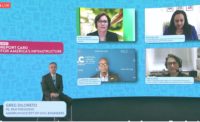Aiming to reinforce anti-corruption mentality and ethical behavior among individual engineers, the American Society of Civil Engineers is creating new standards of business practice for its own members that would be adopted by those of other engineering and construction groups.
Earlier this month, ASCE unveiled a draft of its "principles for professional conduct" that would revise its current code of ethics and serve as a model for other professional societies in the U.S. and abroad. The draft notes that company-oriented groups such as Transparency International and the World Economic Forum have recently released anti-corruption pledges, but "there stands a lack of activity by engineering societies and their members. Most do not directly address the specific problems of corrupt business practices. Its time to bring individual members of the worlds engineering societies into the war against corruption."
ASCE President Bill Henry says "were not here to force-feed this. This is a dialogue of how engineers should act." Noting that members also work in owner organizations and academia, "We need to instill this in the next generation of engineers as well," he says.
The draft would amend the groups code of ethics, instituted in 1914, with more pointed and specific anti-corruption provisions, including "zero tolerance approach for bribery, fraud, deception or corruption in any design and construction work." Such assurances must be stated in contracts and apply to agents hired to facilitate projects and other work. Violations must be reported.
Henry says ASCE will be seeking input from other global groups and expects to present the finished guidelines at its annual convention in Los Angeles in October.



Post a comment to this article
Report Abusive Comment